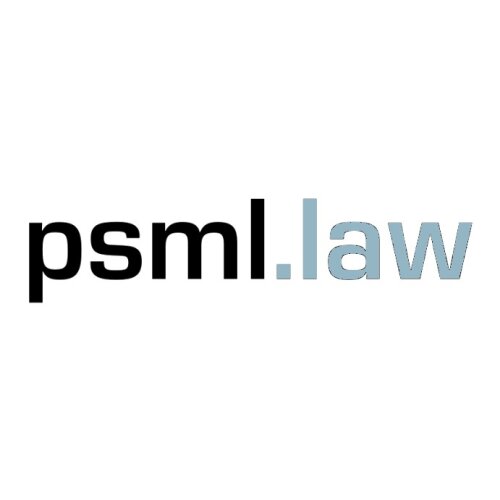Best Sanctions & Export Controls Lawyers in Cyprus
Share your needs with us, get contacted by law firms.
Free. Takes 2 min.
Or refine your search by selecting a city:
List of the best lawyers in Cyprus
About Sanctions & Export Controls Law in Cyprus
Sanctions and export controls are legal measures put in place by countries or international organizations to regulate or prohibit certain activities with specific countries, entities, or individuals. In Cyprus, these laws are key to ensuring the country meets its international obligations, maintains foreign policy objectives, and prevents illegal activities such as money laundering or the export of sensitive goods and technologies. As a European Union (EU) Member State, Cyprus implements both EU regulations and United Nations (UN) Security Council Resolutions relating to sanctions and export controls, supplementing them with national legislation where necessary.
Why You May Need a Lawyer
Navigating sanctions and export controls can be challenging for individuals and businesses alike. You may require the assistance of a lawyer if you are:
- Engaged in international trade and want to ensure compliance with applicable sanctions or export restrictions
- Uncertain whether a business transaction or partnership is affected by sanctions
- Dealing with frozen assets or blocked financial transactions due to sanctions measures
- Operating in sectors with dual-use goods or technology exports
- Seeking licenses or authorizations to export controlled goods or services
- Facing investigations, enforcement actions, or penalties for alleged breaches of sanctions or export controls
- Planning investments or agreements involving countries, entities, or individuals subject to restrictions
- Needing advice on screening business partners and customers for sanctions compliance
Local Laws Overview
Cyprus adopts a multi-layered approach to sanctions and export controls, primarily through its commitment to international law and membership in the EU. The key aspects include:
- EU Regulations and Decisions: Cyprus directly applies all relevant EU sanctions and export control measures. These can relate to financial transactions, trade restrictions, restrictions on certain individuals, and prohibitions on dealing with specified goods or services.
- National Legislation: The Law on the Implementation of the Provisions of the Resolutions or Decisions of the Security Council of the United Nations (2006) and relevant amendments provide the framework for implementing UN sanctions in Cyprus.
- Export Control of Dual-Use Goods and Technology: Cyprus enforces strict controls over goods and technology that may have both civilian and military applications, in line with EU Regulation 2021/821, and maintains a licensing system for exports of such items.
- Customs and Border Enforcement: Cyprus Customs is responsible for monitoring and enforcing export control measures at points of entry and exit.
- Financial Sanctions Monitoring: The Central Bank of Cyprus oversees compliance with financial sanctions and assists in freezing funds or assets linked to sanctioned parties.
Frequently Asked Questions
What are sanctions and export controls?
Sanctions are restrictions or prohibitions imposed by governments or international organizations on countries, entities, or individuals, aimed at influencing behavior without using armed force. Export controls regulate the movement of certain goods, technologies, or services to other countries, especially those that could be used for military purposes or in violation of international law.
Who is subject to sanctions and export control laws in Cyprus?
All individuals and entities in Cyprus, including residents, citizens, companies, and branches of foreign entities, must comply with Cyprus's sanctions and export control laws.
What actions are prohibited under these laws?
Prohibited actions may include exporting certain goods or technology to restricted destinations, providing financial services to sanctioned individuals or entities, making funds or resources available to designated parties, or facilitating transactions in breach of sanctions.
How do I know if my business partner is subject to sanctions?
You should conduct due diligence and screen your business partners against domestic, EU, UN, and other relevant sanctions lists before entering into any business dealings.
Are there penalties for violating sanctions or export controls?
Yes, violations can result in severe administrative and criminal penalties, including substantial fines, confiscation of goods, withdrawal of licenses, or imprisonment.
Do I need a license to export dual-use goods from Cyprus?
Yes, exporting dual-use items - meaning those with both civilian and military uses - generally requires a license from the appropriate Cypriot authorities.
Can sanctions affect bank accounts or assets?
Yes, sanctions can lead to the freezing of bank accounts, assets, or financial transactions involving sanctioned individuals or entities.
What should I do if I discover a potential sanctions breach?
Immediately seek legal advice. You may also be required to report the incident to the relevant Cypriot authorities, such as the Central Bank of Cyprus or the Customs Department.
Are there exemptions or waivers available under the law?
Certain sanctions and export control regimes offer exemptions or licensing possibilities, often for humanitarian or specific legitimate purposes. These are granted on a case-by-case basis following a formal application process.
Where can I find up-to-date information on Cyprus sanctions and export controls?
You can access information through Cypriot government bodies, the official EU sanctions map, and the United Nations' consolidated sanctions list. Consulting with a specialized lawyer is also highly recommended.
Additional Resources
If you are seeking more information or assistance, you may find the following resources useful:
- Ministry of Foreign Affairs of the Republic of Cyprus: Provides updated details about UN and EU sanctions applicable in Cyprus
- Central Bank of Cyprus: Oversees compliance with financial sanctions and publishes relevant guidelines
- Cyprus Customs & Excise Department: Administers export control procedures and licensing for restricted goods and technologies
- Cyprus Bar Association: Offers directories of qualified lawyers with experience in sanctions and export control law
- European Commission - Sanctions Map: Maintains current EU sanctions information, applicable in Cyprus
Next Steps
If you believe that sanctions or export controls might affect your business or personal activities, or if you are facing challenges related to compliance, consider the following steps:
- Conduct an initial self-assessment to determine potential exposure to sanctions or export control risks
- Gather all relevant documents and information related to your transactions or business activities
- Consult a qualified lawyer in Cyprus with experience in sanctions and export controls for tailored advice
- Implement internal compliance policies and regular training for staff dealing with international transactions
- Keep up to date with changes to laws, regulations, and guidance from official sources
- If you are under investigation or have identified a possible breach, engage legal counsel immediately to manage the legal process and communicate with authorities on your behalf
Navigating sanctions and export controls in Cyprus is complex and fast-evolving. Seeking early professional legal advice is the best way to protect your interests and ensure compliance.
Lawzana helps you find the best lawyers and law firms in Cyprus through a curated and pre-screened list of qualified legal professionals. Our platform offers rankings and detailed profiles of attorneys and law firms, allowing you to compare based on practice areas, including Sanctions & Export Controls, experience, and client feedback.
Each profile includes a description of the firm's areas of practice, client reviews, team members and partners, year of establishment, spoken languages, office locations, contact information, social media presence, and any published articles or resources. Most firms on our platform speak English and are experienced in both local and international legal matters.
Get a quote from top-rated law firms in Cyprus — quickly, securely, and without unnecessary hassle.
Disclaimer:
The information provided on this page is for general informational purposes only and does not constitute legal advice. While we strive to ensure the accuracy and relevance of the content, legal information may change over time, and interpretations of the law can vary. You should always consult with a qualified legal professional for advice specific to your situation.
We disclaim all liability for actions taken or not taken based on the content of this page. If you believe any information is incorrect or outdated, please contact us, and we will review and update it where appropriate.
Browse sanctions & export controls law firms by city in Cyprus
Refine your search by selecting a city.















